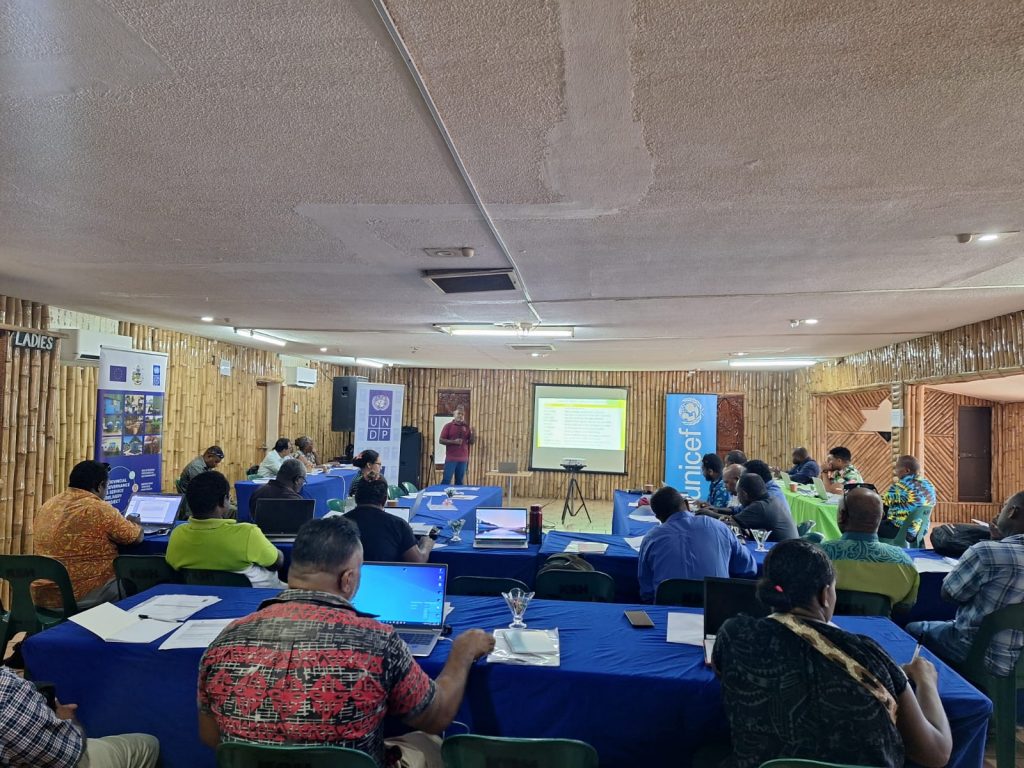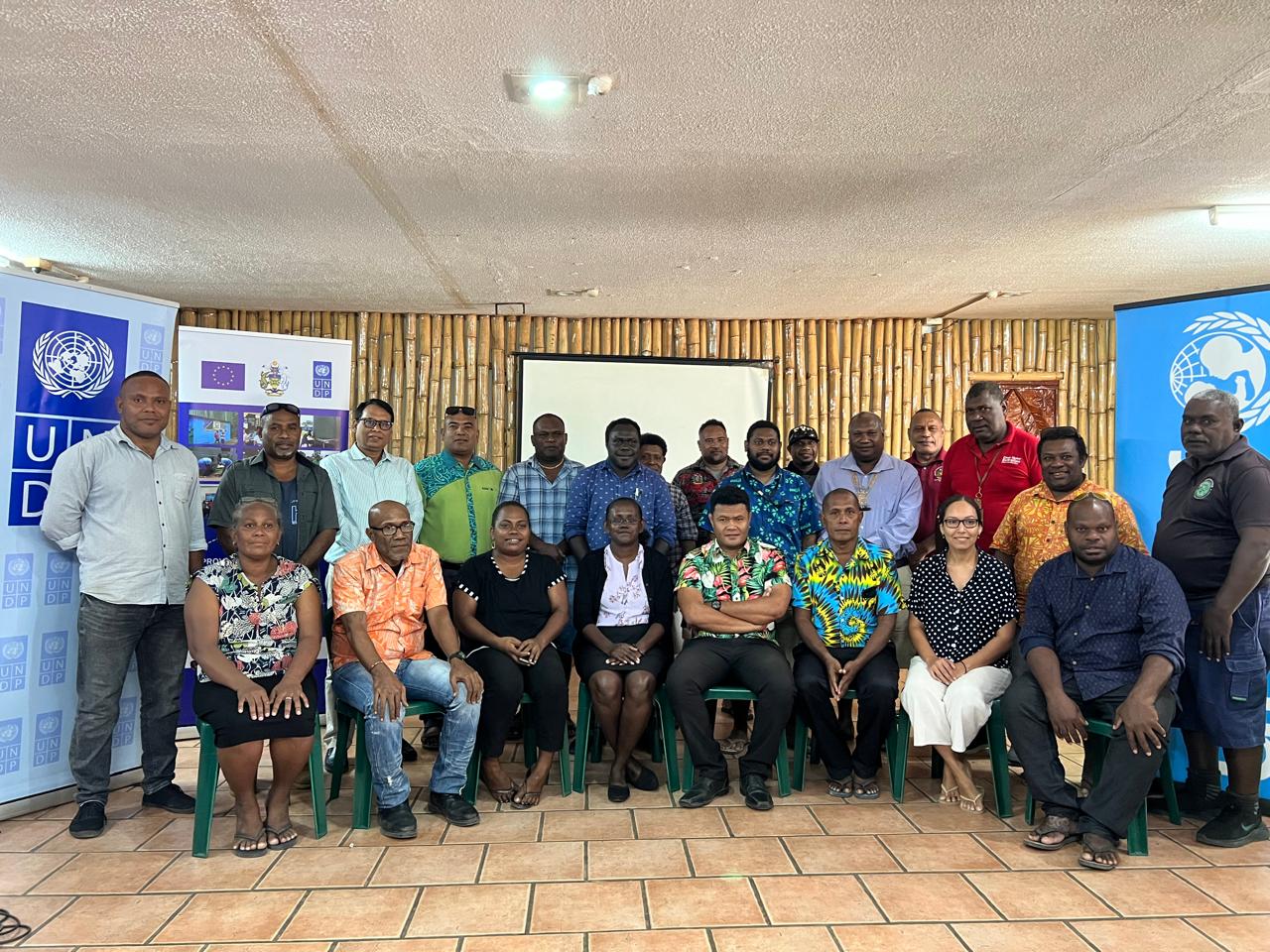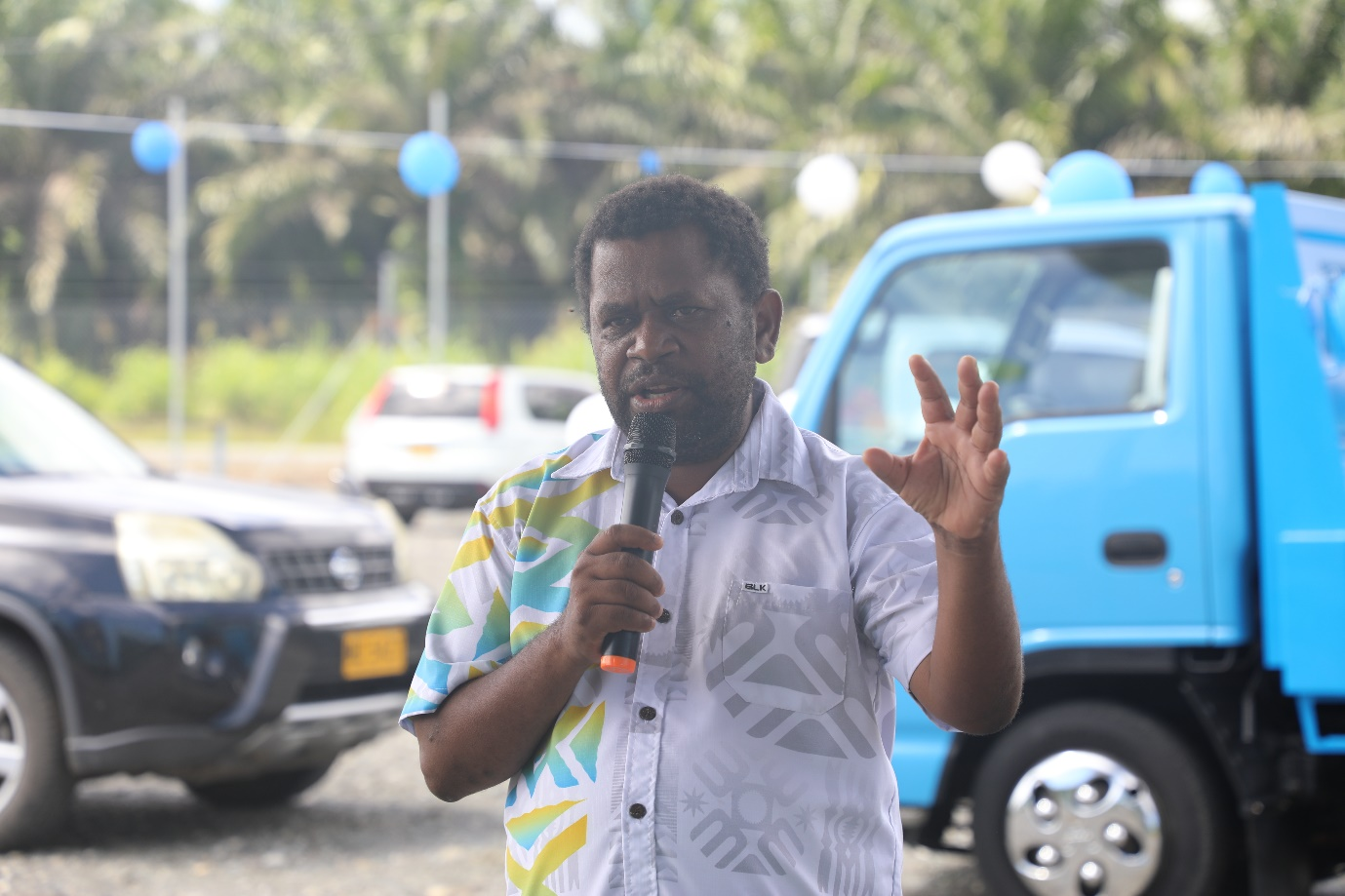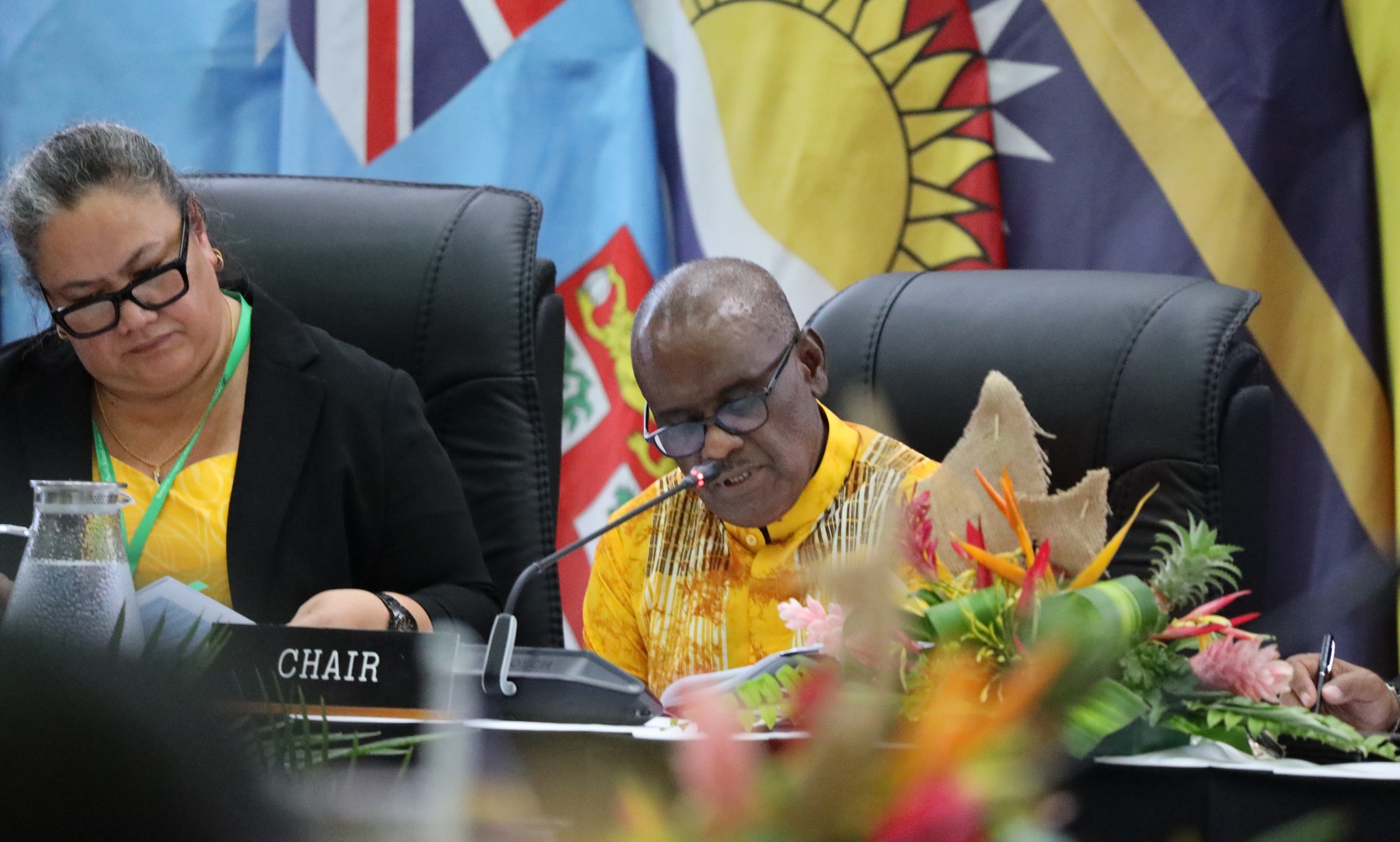Group photo of participants: photo credit: UNDP
THE United Nations Development Programme under the Provincial Governments and Service Delivery (PGSD) project continues this week with its objective to build the capacity of the Government and Provincial Governments with two new workshops to enhance the service delivery in Solomon Islands.
On Thursday 27, the project successfully concluded the “Collaboration and Coordination for WASH Service Delivery Workshop” aimed at strengthening coordination and collaboration with the Ministry of Health and Medical Services (MHMs) and the Ministry of Education and Human Resources Development (MEHRD).
On Friday 28, was held the “Integrating Climate Resilience into WASH Programmes” workshop aimed at building the capacity of provincial government officers to integrate climate resilience perspective in the overall planning process and design risk-informed Water, Sanitation, and Hygiene (WASH) programmes.
Both workshops, organized under the European Union funded Provincial Governments and Service Delivery project, brought together key technical staff from the Ministry of Health, Education and Provincial Governments and Institutional Strengthening, and all nine provincial governments of Solomon Islands: Guadalcanal, Central, Western, Temotu, Choiseul, Isabel, Makira, Malaita and Renbel.
“Effective coordination and collaboration between ministries and provincial governments are essential to ensure the successful implementation of development activities” realizes Mozammel Haque, UNDP Project Manager. He continues: “The PGSD project, implemented alongside the Provincial Governments, recognizes the need to enhance the capacities of the staff of provincial governments and Health and Education Departments at the provincial level. This enhancement is crucial for addressing cross-cutting sustainable development issues, including climate resilience, as we have seen during these two days”.
Considering the existing local capacity at provincial level, these workshops had the objective to reinforce the understanding of the ministries and provincial governments staff. They aimed to highlight the importance of implementing activities in the health and education sectors through practical approaches while integrating climate risk reduction into WASH interventions in schools and health centers. And they aimed to do so by reflecting on coordination and collaboration approaches, focusing on the practical use of available resources; and exploring practical approaches for integrating climate change planning into WASH interventions.
In addition, the workshops helped staff link climate resilience and disaster risk reduction practically, preparing them for the future engagements required by the PGSD project.

During the first day, representatives from the Ministry of Health and Medical Services (MHMS), Ministry of Education and Human Resources Development (MEHRD), provided brief snapshots of their experiences and expectations for effective coordination and collaboration at provincial level. Provincial governments staff participated in joint discussions to share lessons learned and suggest the best approaches for effective coordination, collaboration, and resource utilization.
On the second day, a representative from the Ministry of Environment, Climate Change and Disaster Management and Meteorology (MECDM) shared the Solomon Islands Integrated Vulnerability and Adaptation Framework to be used before planning infrastructure design to make it resilient and withstand climatic shocks and natural disasters. He also shared the IPLANT framework to be used during the implementation of a project for its sustainability in the context of climate and disaster risks.
To end the workshop, a panel discussion was led by the Provincial Secretary, Mr. Patrick Toiraena. As he expressed: “the discussion addressed questions related to the integrated climate change risk reduction mechanism in WASH programmes for schools and health centers, something as new as needed in Solomon Islands, one of the most severely at-risk countries by climate change”.
The workshop underscored the bottlenecks of weak coordination and collaboration and the critical role of the Provincial Governments in leading the coordination and collaboration between all stakeholders working at provincial level for which this capacity really needs to be strengthened to pave the way for a better service delivery, and ultimately contributing to the well-being and local development of communities across the Solomon Islands.
Source: UNDP












